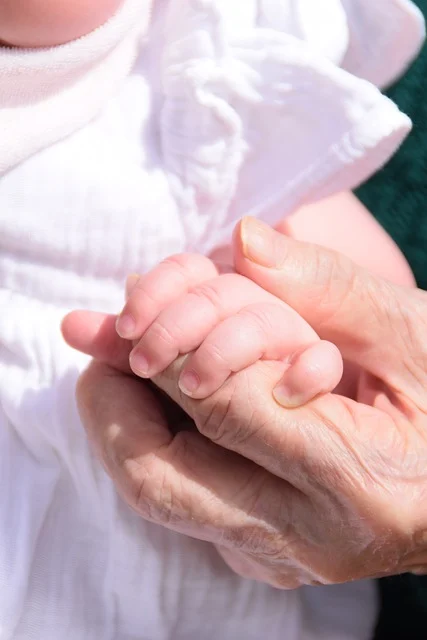
Understanding Aging Skin and Increased Bruising: Causes and Solutions
As we age, our bodies undergo numerous changes (really? lol), many of which are visible in our aging skin. One common concern among older adults is the increased tendency to bruise easily, particularly after routine procedures like blood tests. This phenomenon can be perplexing and worrisome, especially for those who did not experience such issues in their younger years.
Here, we explore the factors contributing to these changes and offer guidance on managing and preventing excessive bruising.
Changes in Aging Skin
- Thinning of the Skin:
- Epidermis and Dermis: As we age, the outer layer of the skin (epidermis) becomes thinner. Additionally, the dermis, which lies beneath the epidermis, loses collagen, elastin, and fat. These changes reduce the skin’s strength and elasticity, making it more prone to damage.
- Loss of Collagen: Collagen is a crucial protein that helps maintain skin structure. Reduced collagen production leads to a decrease in skin elasticity and strength, contributing to sagging skin and wrinkles.
- Loss of Fat and Collagen:
- Subcutaneous Fat: The layer of fat beneath the skin diminishes with age, causing the skin to look less plump and more fragile.
- Collagen and Elastin: Decreased levels of these proteins further reduce the skin’s ability to withstand minor traumas.
- Reduced Blood Flow:
- Capillaries: The walls of small blood vessels, or capillaries, become more fragile with age. This increased fragility can lead to easier bruising and slower healing when the skin is punctured or injured.
- Decreased Sebum Production:
- Oil Glands: Sebum production decreases with age, resulting in drier skin. Dry skin is more susceptible to damage and irritation, further contributing to the likelihood of bruising.
Causes of Easy Bruising
- Fragile Blood Vessels:
- Capillary Walls: Aging makes capillary walls more fragile and prone to breaking, leading to blood leakage into surrounding tissues and forming bruises.
- Reduced Elasticity: Loss of elasticity in blood vessels increases their susceptibility to injury.
- Thinning Skin:
- Protection: Thinner skin layers provide less cushioning for blood vessels, making them more vulnerable to bruising.
- Medications:
- Blood Thinners: Medications like aspirin, anticoagulants, and certain supplements can impair blood clotting and increase the risk of bruising.
- Steroids: Both topical and systemic steroids can thin the skin and contribute to easy bruising.
- Sun Damage:
- Photoaging: Prolonged exposure to ultraviolet (UV) light accelerates the breakdown of collagen and elastin, exacerbating skin aging and increasing bruising susceptibility.
Managing and Preventing Bruising on Aging Skin
- Before Blood Tests:
- Inform the Phlebotomist: Letting the phlebotomist know about your tendency to bruise can help them take extra care.
- Hydration: Staying well-hydrated makes veins easier to locate and reduces the need for multiple punctures.
- After Blood Tests:
- Pressure: Apply firm pressure to the puncture site for several minutes to reduce bruising.
- Ice Pack: Use an ice pack on the area for short periods to minimize swelling and bruising.
- Skin Care:
- Moisturize: Regular moisturizing helps maintain skin hydration and elasticity.
- Sun Protection: Use sunscreen and protective clothing to prevent photoaging and preserve skin integrity.
- Review Medications:
- Consult Healthcare Provider: Discuss your medications with your healthcare provider to understand their effects on your skin and bruising risk. Adjustments may be needed to minimize bruising.
Understanding Topical Retinoids for Aging Skin
Topical retinoids are a class of medications derived from vitamin A, commonly used to treat various skin conditions and improve skin texture. They are particularly effective in managing signs of aging and treating acne. Here are some key points about topical retinoids:
- Types of Topical Retinoids:
- Retinoic Acid (Tretinoin): Treats acne, reduces fine lines and wrinkles, and improves skin texture.
- Adapalene: Primarily used for acne treatment and also helps with fine lines.
- Tazarotene: Treats acne, psoriasis, and reduces signs of aging.
- Over-the-Counter (OTC) Retinoids: Less potent forms like retinol and retinyl palmitate are found in many OTC skincare products.
- Benefits of Topical Retinoids:
- Anti-Aging: Stimulates collagen production, reduces fine lines and wrinkles, and increases cell turnover.
- Acne Treatment: Prevents clogging of pores and reduces inflammation.
- Skin Texture and Tone: Improves skin texture and helps fade dark spots and hyperpigmentation.
- Usage and Application:
- Gradual Introduction: Start with a lower concentration and gradually increase as your skin builds tolerance.
- Application Tips: Apply to clean, dry skin, use a small amount, and avoid sensitive areas. Combine with moisturizers and sunscreen to combat dryness and protect from UV damage.
- Side Effects and Considerations:
- Common Side Effects: Redness, peeling, and dryness, especially when first starting.
- Precautions: Avoid use during pregnancy and consult a healthcare provider if you have sensitive skin or existing skin conditions.
Aging skin is more susceptible to bruising due to a combination of thinning skin, loss of supportive tissues, and increased blood vessel fragility. Proper skin care, informing healthcare providers, and taking precautions during and after procedures can help manage and reduce the occurrence of bruising. Topical retinoids can be beneficial for improving skin texture and reducing signs of aging, but they should be used carefully and under the guidance of a healthcare professional. Understanding these changes and taking proactive steps can help maintain healthier skin as we age.


